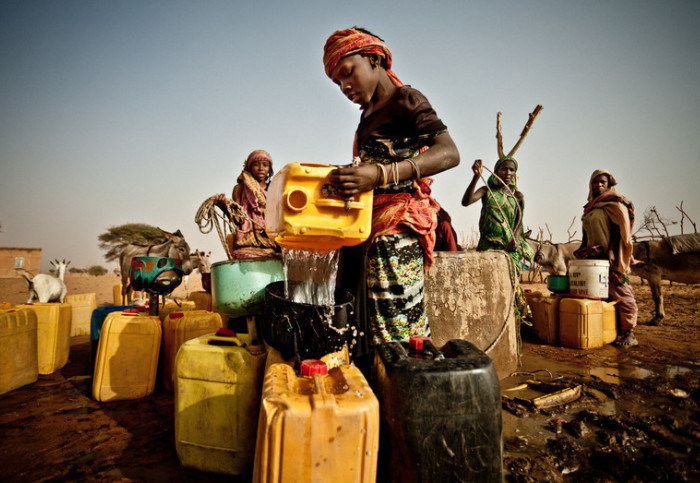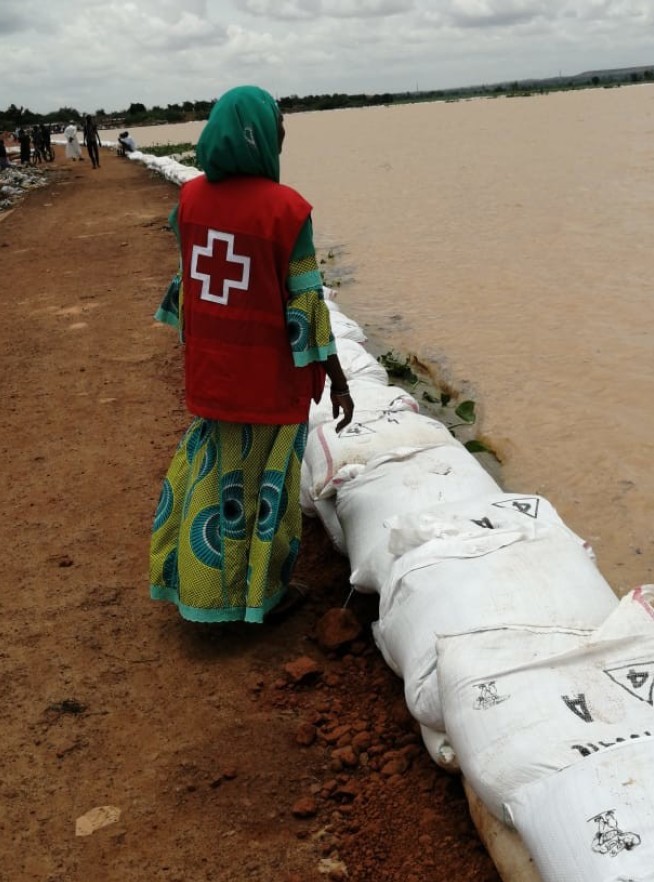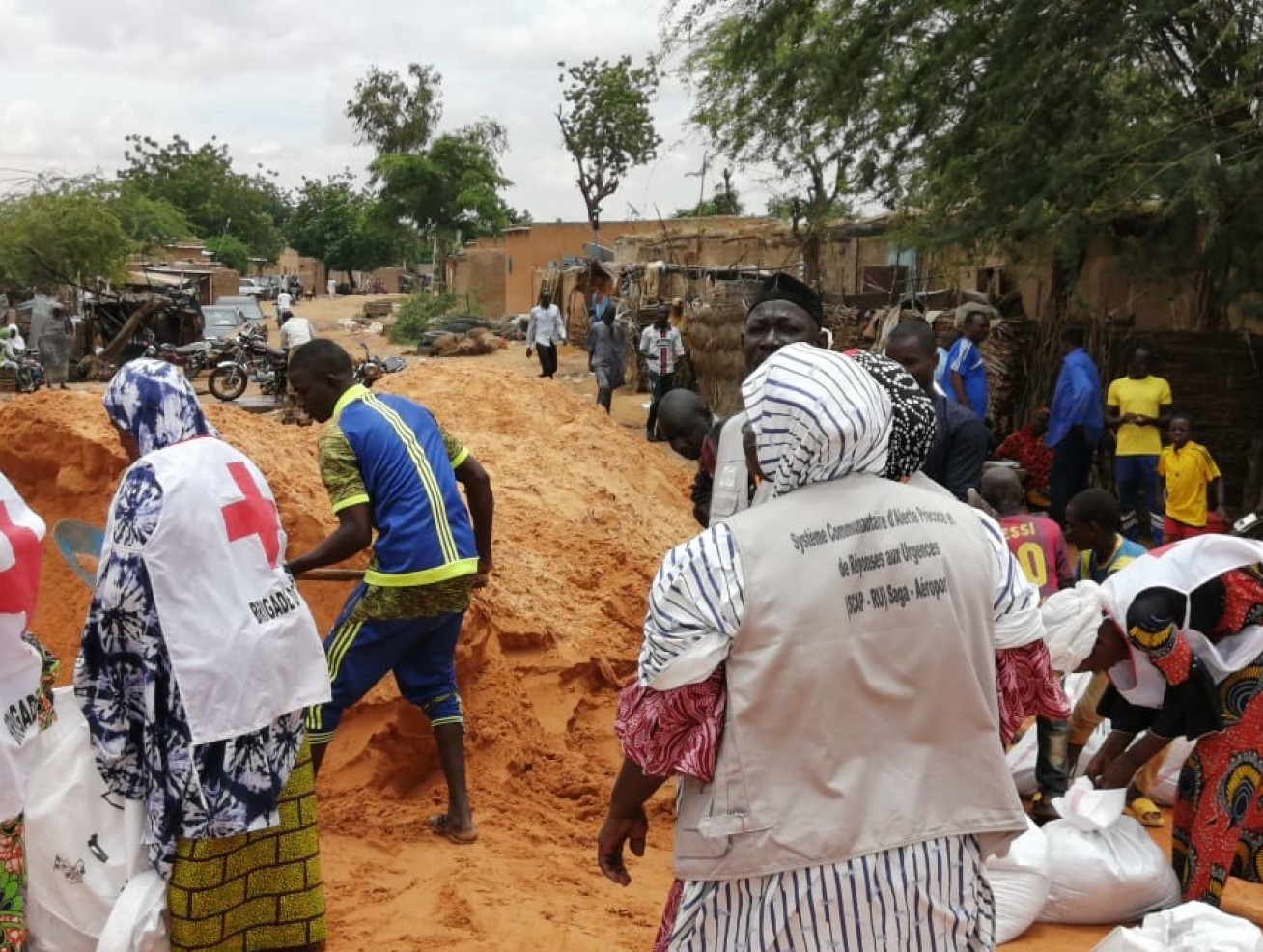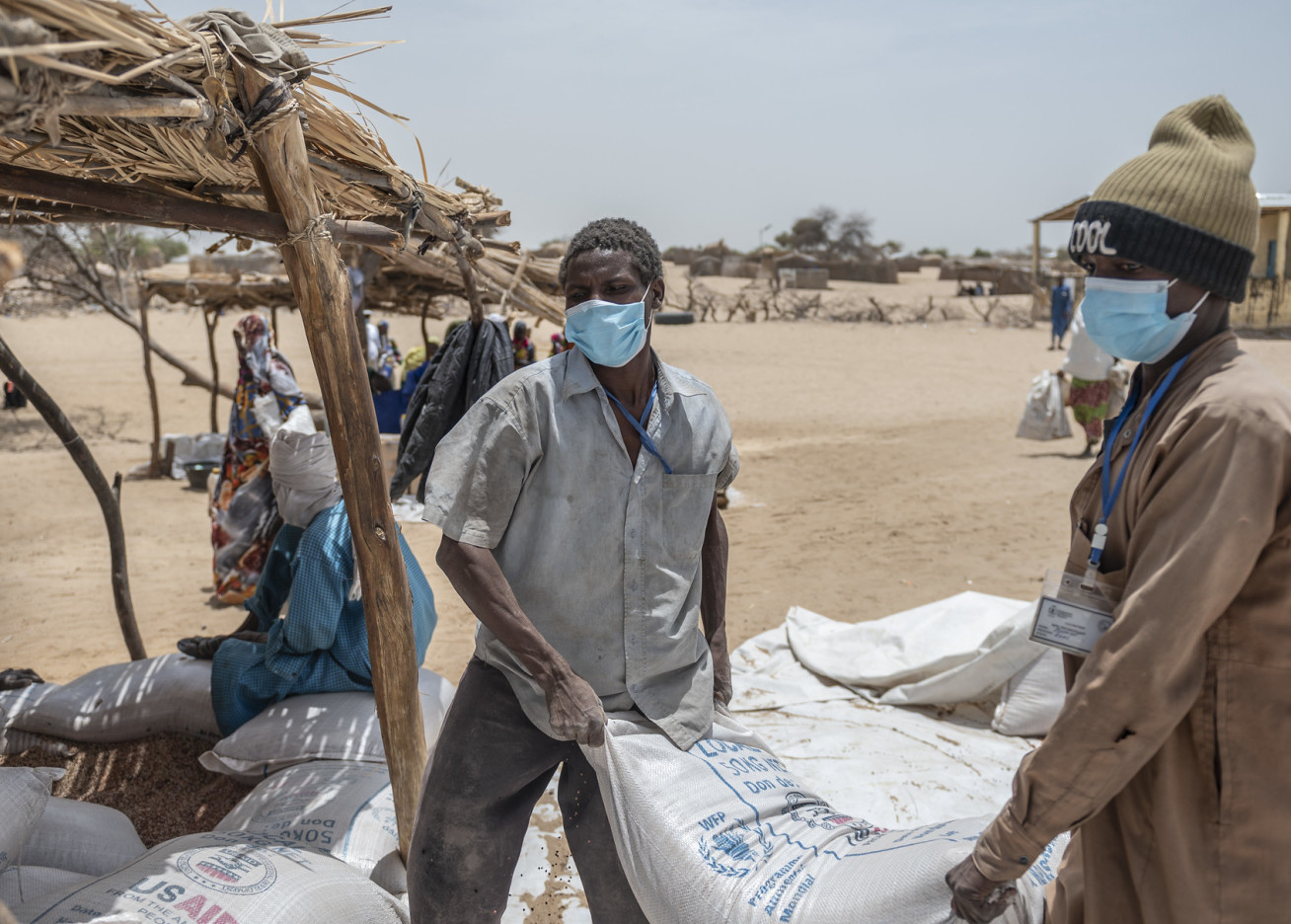Climate change made rain behind deadly West Africa floods 80 times more likely
by Simon Levey

Mauritanian woman draws water from a well. The country is one affected by a multi-year drought. (Credit: Pablo Tosco/Oxfam CC BY-NC-ND 2.0)
A new study linked floods with climate change, but another on regional drought was unable to reach a conclusion, hindered by a lack of reliable data.
Heavy rain that caused floods killing more than 800 people in Nigeria, Niger, Chad and neighbouring countries in June to October this year was made about 80 times more likely to happen by human-caused climate change.
This is according to one new analysis by the international team of climate scientists that make up the World Weather Attribution group.

In another study, of a 2021 drought that reduced crop production in Mali, Burkina Faso, Niger, Nigeria and Chad, contributing to a food crisis the following year, the same group of scientists were unable to estimate the influence of climate change because of a lack of reliable weather station data.
The researchers point to the need for investment in weather stations, to help people in the region better understand weather variability and prepare for the effects of climate change.
World Weather Attribution (WWA) is an international collaboration led by Dr Friederike (Fredi) Otto at Imperial College London, that analyses and communicates the possible influence of climate change on extreme weather events, such as storms, extreme rainfall, heatwaves, cold spells, and droughts.
Dr Fredi Otto, Senior Lecturer in Climate Change at Grantham Institute - Climate Change and the Environment at Imperial College London, said:
"African countries are among the most vulnerable to the impacts of climate change. And we know that many of these impacts are happening, even if they don’t make international headlines. Including more science and scientists from the region into international climate research is vitally important to understand and address loss and damage."
Deadliest floods on record
The floods were among the deadliest on record in the region.
In Nigeria, 612 people were killed, 1.5 million people were displaced and around 570,000 hectares of farmland was damaged; in Niger, 195 people were killed, and in Chad, 22 people were killed. Cameroon and Benin were also affected.

The flooding followed a rainy season that was wetter than usual, including short periods of very heavy rain.
To quantify the effect of human-caused climate change on this rainfall, scientists analysed weather data and computer simulations to compare the climate as it is today - after about 1.2°C of global warming since the late 1800s - with the climate of the past, following peer-reviewed methods.
The analysis focused on two regions: the Lake Chad Basin, where the wet season saw above-average rainfall, and the Lower Niger Basin, where there were shorter intense downpours.
The scientists found that human-caused climate change has made it about 80 times more likely that the rainy season in the Lake Chad Basin is as wet as it was this year, and that this year’s rainy season was 20% wetter than it would have been without the influence of climate change.
They also found that the shorter periods of intense rainfall in the Lower Niger Basin, which worsened the floods, are now about twice as likely to happen because of climate change.
The scientists note that the precise size of the influence of climate change is uncertain because rainfall in the region is highly variable.
The influence of climate change means the prolonged rain that led to the floods is no longer a rare event.
The above-average rain over the wet season now has approximately a one in ten chance of happening each year; without human activities it would have been an extremely rare event.
Maarten van Aalst, director of the Red Cross Red Crescent Climate Centre, and a co-author on the paper, said:
"It is often more challenging to find clear climate signals in regions such as West Africa, where there is less data and less scientific attention than in richer parts of the world. Nevertheless, the Nigeria attribution analysis found a very clear fingerprint of anthropogenic climate change. The floods resulted in massive suffering and damages, especially in the context of high human vulnerability.
"A common thread between both of our studies is that the impacts of extreme weather events and climate change are far worse in contexts of high vulnerability. It is crucial that delegates now gathered in Sharm El-Sheikh for COP27 reach an agreement to ensure funding from wealthy nations addresses the impacts already suffered in poorer countries, who are bearing the brunt of climate change."
Data lacking for drought study
The drought study focused on the 2021 rainy season in the Sahel - a region that stretches from Africa's east to west coast, running to the south of the Sahara - which usually runs from June to August and strongly influences crop yields the following year.
The rainy season in 2021 started late and was shorter and drier than usual. The dry period occurred at a critical time for rain-fed crops, leading to a drop in production, which contributed to a food crisis.

The study used the same 'attribution' methods to evaluate the influence of climate change on the drought, but the scientists found that the variability of rainfall in the region and the limited historical weather records made it difficult to assess relevant climate models and meant they could not determine whether human-caused warming had been a factor.
The scientists concluded that investment in weather stations is essential for people in the region to understand natural variations, and how climate change is influencing drought now and how it may change with further emissions.
Audrey Brouillet, researcher at the Institut de Recherche pour le Développement (IRD), and co-author of the study, said:
"Lack of long-term homogeneous observations is always challenging with attribution studies in African countries. Climate science would greatly benefit from more weather stations in the continent and sustained funding to ensure long-term data."
Both studies noted that the reason these events resulted in such disasters is because people in the region are very vulnerable to extreme weather.
Small shifts can have major effects
The food crisis showed that even small shifts in rainfall can have major effects in the region and demonstrated its vulnerability to events that happen elsewhere.
High global food prices worsened the crisis, and while the Russian invasion of Ukraine disrupted supplies this year, the scientists warned that the effects of future climate change on global food production could be particularly dangerous for the region.
The effects of the floods were worsened by the proximity of homes, infrastructure and farmland to floodplains, combined with poverty, conflict and political instability.
The floods study was conducted by 22 researchers and the drought study was conducted by 18 researchers, as part of the World Weather Attribution group, including scientists from institutions in Cameroon, Denmark, France, Germany, the Netherlands, Nigeria, South Africa, the United Kingdom and the United States.
--
The studies “Climate change exacerbated heavy rainfall leading to large scale flooding in highly vulnerable communities in West Africa” and “Food crisis in Central Sahel in 2022 driven by chronic vulnerability with large uncertainties in climate data inhibiting the assessment of the role of climate change” are published on the WWA website, based on a peer-reviewed method.
Article text (excluding photos or graphics) © Imperial College London.
Photos and graphics subject to third party copyright used with permission or © Imperial College London.
Reporter
Simon Levey
Communications Division